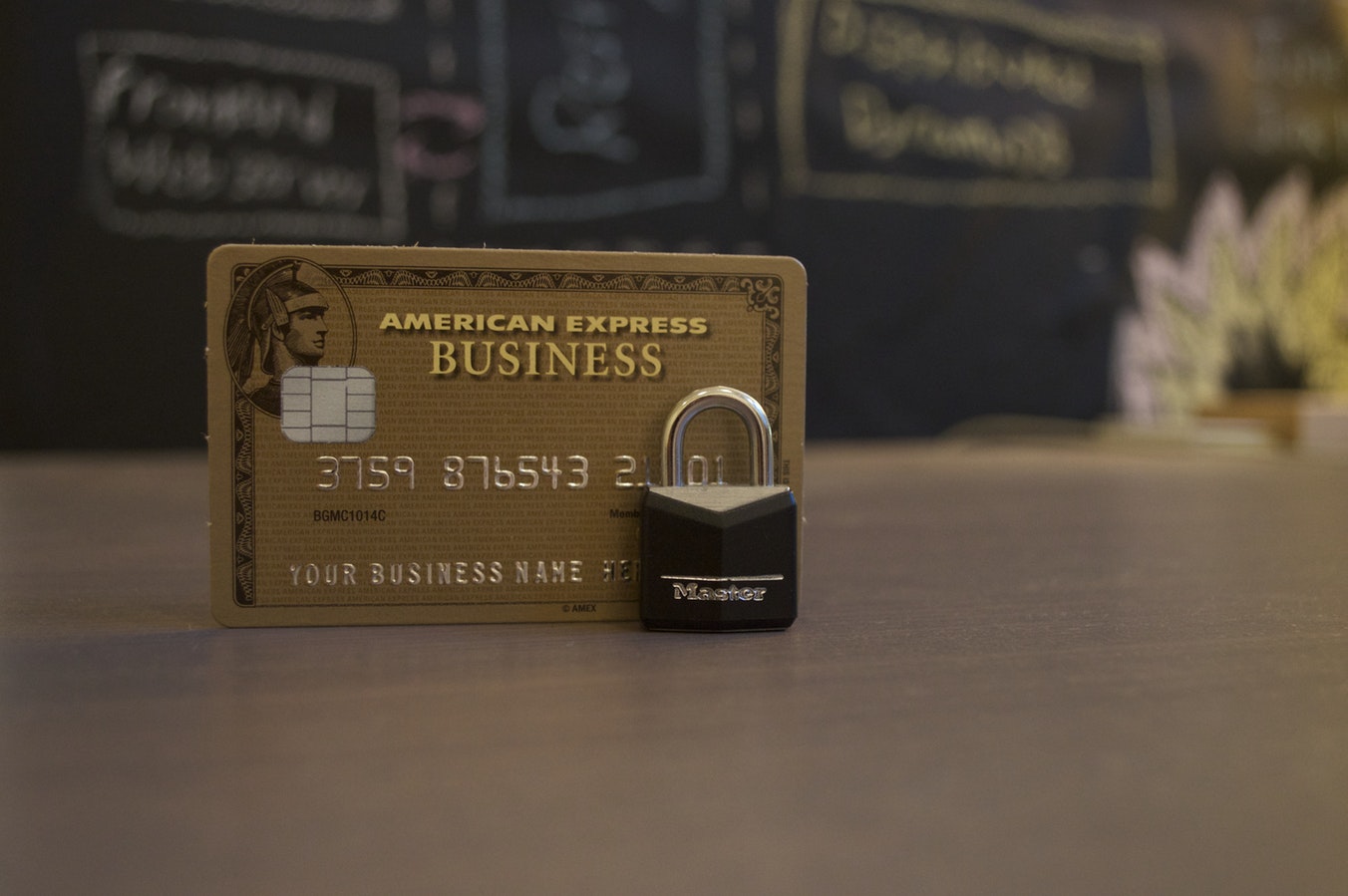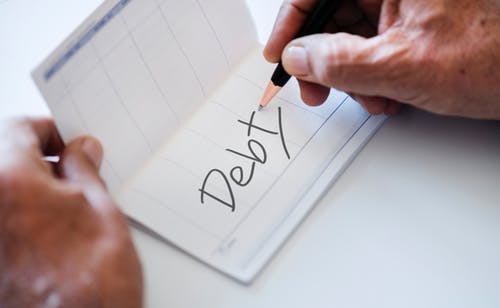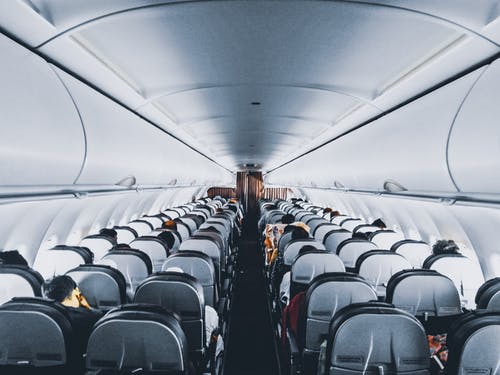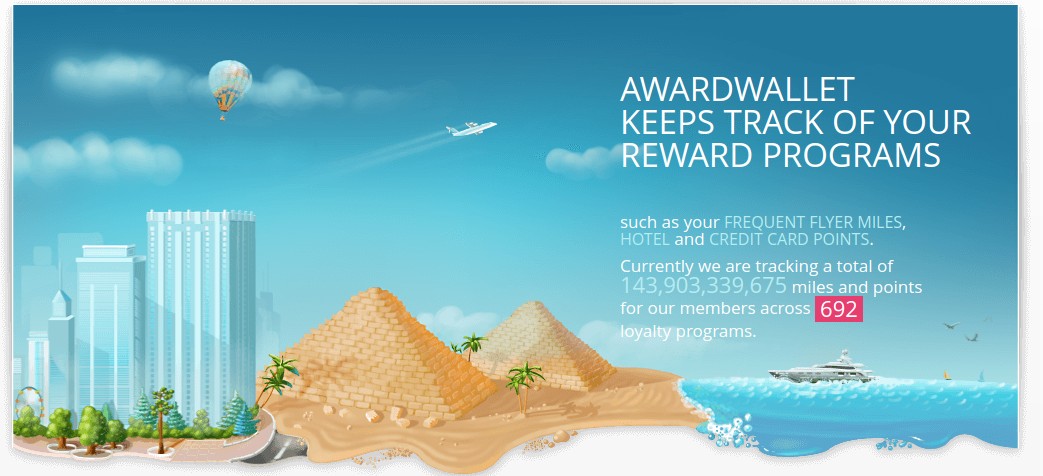Detaching from the Matrix…Small steps to big rewards
We are in a mess. We got this way because people forgot that the power brokers of the world treat life like a chess game, and we think of life like a daily or hourly experience.
US banks have been offering incentives to get you to sign up for credit cards for years. The incentives are really valuable if you know how to play the game, but could they be a deal with the devil if you don't?
Full disclosure. I collect and use travel rewards all the time. In fact you could say I'm a bit addicted to the whole game. But I carry no debt. I know the risks associated with this and I'm cautious of any obligation. If you are considering that great offer you got in the mail from the credit card at the bank, etc. then before you pick up the pen or navigate to the URL to sign up for the card, understand the rules and how the game is played.

Credit cards are a very attractive product for a bank. They basically get multiple forms of income from issuing credit cards, even though they classify credit cards as "unsecured loans". An unsecured loan is a loan where the bank doesn't have any collateral associated with issuing the line of credit. If you default on paying them back the money, they have no immediate collateral they can seize in lieu of payment. However in a world where computers define your "reputation", most people are protective of their credit score because it is used to not only determine their credit worthiness, but also factors into being approved to rent an apartment or house, employment, security clearance, etc. Credit scores have become a big deal in a world where you are a slave to a bank anyway.
So here's how the banks make money with credit cards:
The Interest on a credit card typically is between 15-30%. That is a huge income generator for a bank. Compare that to a secured mortgage at 5% on real estate. Sure, that is considered lower risk but the fact is that credit cards generate as much as 6x the income for the bank. Imagine if you got 30% interest on your savings in a bank. You'd probably never have to work again. In a world where the FIRE (Financial Independence Retire Early) community look to get a 3-4% dividend income on their savings to be able to retire, just how quickly could you retire if you were earning 30% on your money? I mean if you saved up $300K, you could live off $100K a year as perpetual income if you were earning 30% on it.
Credit cards often come with annual fees that you have to pay for the privilege of having a card. In addition, there are subtle fees charged on carrying a balance on the card. They might be hidden as monthly fees, or statement fees, or whatever they want to call them, but they are fees. And if you are 1 day late on a payment, they make massive fees for penalties and late interest payments. The fine print is deadly, so know that the rules here are strict. You should not have credit cards if you intend on carrying a balance on them.
This is a big one for the bank. Each time you swipe your card at a retail store, or enter it into a website for an online store, your merchant is paying a fee to the banks. This is hidden in multiple layers - a "payment processor" charges a fee to provide the ability for the merchant to take the card, and remits their money back for sales made on credit cards (after approval) usually within about 3-5 business days. The card providers (VISA, Mastercard, AMEX, etc.) charge their part of a fee as well, so typically the merchant will pay directly about 3% of the total transaction. So that can of paint you bought at the hardware store for $20 had the merchant paying about $0.60 in fees. On top of that, there is normally a monthly fee that they have to pay to have the facility to take the cards, and a "per swipe" fee that comes with each swipe that they process.
In addition, merchants are subject to the risks associated with the card. If you buy something and feel that the deal wasn't representative of what you ordered, the credit card company will provide you a "chargeback" capability in which you can return the item and get your money back. This is often abused because the merchant has very little lattitude to fight a chargeback. The rules are strict and the consumer holds a 90% chance of getting the money back. Even if they are fraudulently using the card. This is because the nature of credit cards are flawed in that you have to give your entire account details for each transaction, meaning that the merchant could completely charge your entire account balance if they wish. Rather than a "cash-like" type of transaction, such as Bitcoin, etc. where you only give them access to the agreed upon amount of the transaction, the fact that you hand over your entire account to the merchant and trust that they will only charge the agreed upon transaction means that the merchant accepts the risks and responsibility for the card and its use entirely and carrys the burden of chargebacks as a result. Although this is not a physical charge per se, it is often met with insurance costs to carry the responsibility of handling cards and annual PCI (Payment Card Industry) compliance audits in order to reduce fees charged to the merchant by the card processing providers.
So as you can tell, there is a LOT of money to be made with credit cards with the banks.
The first rule of the unconstrained is to understand that our world is run by banksters. From the day you are born they are attempting to enslave you. Country's wealth is measured in how "happy" the people are, and often this is tied to physical goods that they own, their house, cars, etc. We consider our country to be wealthy because everyone has a McMansion, nice new car, send their kids to the best schools, etc. It is a Hollywood movie, but like Hollywood it is a facade of fiction.
Most people can't pay cash for what they need. If you work and earn money, the first thing most people do is to sell their future on the assumption that the job will be there for them in the future. They take on debt because they think they can service the debt because now they have income coming in. The reality is that they forget the principal balance of the debt and do little to pay it down. They need furniture, clothes, fix the car, take a trip, etc. and they use a credit card without thinking to finance it - forgetting that this is a future payment they have to make for those items. If they didn't buy what they didn't have cash to pay for, then they would break this cycle and be free of it. But they don't. Because social pressure means you need to drive THAT car or where THAT suit or have THAT phone, etc. The percentage of people who buy a $1,000 phone but pay for it with their monthly phone bill, is just another example of debt. If they choose to change phone carriers, they have to pay the balance due on the phone. That can be extortion. Additionally the costs per month just keep on going up, as they use a phone company basically as a bank to fund their capital equipment acquisition.
They can't buy that car because they don't have enough cash saved. So they pay a higher interest rate for a $0 money down loan, and walk out of the car dealership with 72 months of future sold out. When they lose their job, or get sick, or whatever interruption comes along to affect their income, the debt payments still need to be made.

Add to that the mounting obligation of credit card payments. Sure, most of your bills can be paid online. But with that gives you the option to use a credit card rather than an ACH or debit transaction against actual money you have. Without thinking, you start to see the credit card balance go up and up and up, forgetting that you created that mess.
Financial freedom starts with having no debt. But in a world where credit cards may be the only form of payment for car rental, travel, etc. how do you control this?
Banks made deals with travel agencies decades ago and setup a world in which you basically have no ability to book travel, accommodation, car rentals, etc. without a credit card. Consequently those that want to roam the world, need a credit card. There is no choice. It makes perfect sense that the credit card providers work with travel companies to offer incentives to have THEIR card for your travel since you are basically unable to travel without a credit card.
Is it not surprising that unless you become an expert in the "travel game" that you feel you get ripped off with airline ticket pricing, hotel pricing, etc? That they can charge a variable price based on demand, time of year, etc.? There is no such thing as a fixed fee for a travel ticket because it "depends". So in this world of hucksters and con artists, it is the perfect match made in heaven for banks.
Travel rewards are a major incentive offered by banks to have you sell your future out for a credit card with a massive award bonus after you meet some minimum spend requirements, and considering just how much money the banks make on you doing that, they can absorb the costs of travel tickets, etc. easily. And the airlines know this because they often work in partnership with the banks to sell you the seats that often go empty. It costs an airline the same amount of money to fly a plane from one point to another whether it is full of passengers or empty, so if they are looking at certain flights and times of the week, year, etc. when they know that there is a high chance the plane may have empty seats, then they can afford to discount or give away those seats through their partnerships with banks - in effect they are pre-selling the tickets to the banks so that they don't carry the risk of the empty seat.
If you have the courage and confidence that you can play this game without selling your future out to the banksters and creating the very constraints we are trying to help you break free of, then you can play this system to your advantage - BIG TIME. But know that only a very small % of people can do that. My guess is that maybe 10% of all credit card holders have cards and don't carry debt. The banks know that, so they are punting on the 90% of people who make them rich and get suckered into the deal. If you are in the 10% then you are probably reading this anyway. I'm going to make the assumption that you are, but be warned of the dire consequences if you elect to play this game and carry debt. It won't end well for you.
OK, that said, how do you win at this? First you need to outline your goals. If you are looking to travel from the US to Europe with 4 people, then that is a goal. You will need some advanced notice for this because until you have amassed 500,000 FF points with credit cards, you don't have the luxury of making quick decisions for travel. You need time to plan things out and you need to be willing to study & learn the system. You also need to be organized.
Know that each credit card that you carry has an "available credit" amount on it. Your total available credit, compared with your credit utilization (how much of it you are using) are some of the most critical factors in your FICO score. The FICO score is your credit score and tells the banks computer systems how credit worthy you are. It is basically a risk number that determines what products suit you, how much credit the will extend to you and how well you do with paying it off. If you carry little debt and pay things off, you would think your FICO score is high. It isn't. It really comes down to how long the history is that they have on your spending and credit utilization, along with just how much of your available credit that you use. If you use more than 30% of it, your score goes down. If you have a lot of available credit and use less than 30% of it, your score goes up. It doesn't matter how many credit cards you carry. The number is a consolidation of total credit available and it is a myth that the number of cards you carry affects it. In fact, more cards means more available credit and as long as you pay them all on time, your score will go through the roof. This is particularly important if you use long term debt (ie. mortgage debt) for investing or buying your own home because your FICO score is used to help you qualify and how much interest the bank will charge based on the insurance risk that they carry in extending you credit.
So let's put this plan out there.... A flight from New York to Paris (round trip) is, let's say, 60,000 FF points. Different airlines have different products at different pricing, but an example of AirFrance would have tickets around that price. Maybe cheaper. If you fly at certain times of the year, often there are deep discounts in either the $ price or the FF price of a ticket. Know this as you plan, but for the sake of this example let's say that 60,000 points is the airfare costs, and you have a family of 4. So the total ticket price in points would be 240,000 FF points + there will be some fuel surcharges, airport tarrifs, etc. Some airports are far cheaper than others for this - e.g. London Heathrow is notoriously expensive and often the cost of the airport fees are more than the cost of a ticket, so getting FF point award tickets might still be offset by high airport fees. I know that Charles DeGaul airport in Paris is quite reasonable, so that would be my target destination. But this changes regularly so check before you book on these hidden fees. Also know your airlines and their baggage and seating policies. Some have really bad deals for bag allowance and seating and you wouldn't want to fly on them. Some are much better. If you play this game correctly, you could be flying business or first class using points, but that takes a true points expert to amass the points needed for that. I'm going with the economy traveler assumption here on these prices.

Each airline is usually a member of some alliance or network. That way they can all participate in programs where you book flights through one of them for the others. They also typically share similar FF point types. Know this before you choose your airline because it is important. If you are generating points on AMEX for example, they might not be transferrable to the airline you want to use for travel and either you have to accept a less desirable carrier or pay for a ticket. Not the goal of a true travel rewards expert.
Certain cards have large award bonuses when you sign up. Remember your goal is 240K points. You will see certain deals being offered from time to time that have 50, 75 or even 100K award bonuses. If they are for cards that would either allow you to spend the points to buy tickets on the airline you want, or are transfer partners with those airlines, they become a candidate. They all typically have some minimum spend rules (ie. you have to spend $5K on the card in the first 90 days to get the FF points). If you are paying a mortgage, rent, car payments, etc. you might be spending that money anyway, but if you have multiple cards and you need to meet a lot of minimum spends, you might need to use some techniques called "manufactured spending" to meet them, and that is a topic that is too "black hat hacker" for this blog. I would suggest you join and start researching the flyertalk.com forums for discussions on those techniques.
Alternatively (or maybe as well) you could sign up for services like Plastiq.com If you do, can I ask you to enter this referral code which will help me with the costs of this website: 618739
Plastiq.com will let you use your credit card to pay your regular bills, and will send out a printed check to the vendor for you. There are some restrictions on what cards work for what types of payments, so research that first. But if you have a credit card that can be used for your mortgage payment, and this helps you meet minimum spending on the card to get the FF points, then you should use Plastiq.com to do this. But just remember - just as you would have written the check to pay the mortgage, you still have to write the check. But you pay your credit card off immediately. This is called "churning" and it let's you meet minimum spend and the $ spent on that card generate points as well.
A trick of the travel rewards system is to look at what cards offer what award bonuses for spending. For example, certain cards provide 1x, 1.5x, 2x, 3x, 4x or 5x points on certain categories. Fuel purchases, for example on certain Chase credit cards, give 2-3x bonuses. That means that the $50 in fuel that you need to fill your tank at the pump could be worth 100-150FF points each fill. If you have a few cars in the family this is a great way to earn thousands of points over the year. And if you remember that domestic one way airline ticket on certain carriers might be 10K FF points, just by knowing the award bonuses means you fly for free.
This is a big one. Businesses spend a lot with inventory purchases, services, insurance, rent, etc. and imagine just how many points you could amass if a business was to use credit cards? The other good news here is that business credit card award point offerings are usually very attractive since the sheer volume of business done on those cards means a huge windfall for the banks. So you might want to consider registering some side hustle business so that you can get business credit cards. Again, you are looking to not spend any more money than you would normally, but to spend it using the credit card tro get the points and immediately pay off the card. Again, you don't want to carry debt. You have to pay these cards off immediately to not be a victim to this game.
The key success factor here is organization. If you have 12 credit cards, for example, you have to stay on top of this. Laser focused as they say. How do you do this without going insane?
I use this:

Awardwallet let you register all your FF programs, credit cards, hotel programs, etc. so that you can manage everything in one place. They have a web site and a mobile app for this and it is secure and works great. There is a simple "Update" function that will reach out to all your registered card providers, airlines, etc. and get your updated points balance so you can see at a glance the entirety of your balances.
What they don't do is manage your card balances and when you should be paying your cards. You will still need to keep track of that manually. So you still have to be diligent about this, but with AwardWallet you can see your points growing as you change your spending habits to get the maximum points for your travel.
Travel hacking requires a lot of disciplline and isn't for everyone. About 10% of the general population probably have the ability to do this, and thankfully the other 90% pay for it. If you are the 10% that have what it takes to make this work, you can travel for free. I have for the past 5 years. I haven't bought an airline ticket for me, my family or even our extended family. Just today as I write this, my daughter and her friend went to Hawaii from Phoenix for spring break. It didn't cost a dime. I had Hawaiian airline points available from a credit card award and she flys for free. I wish my parents could have given me a gift like that when I was 21. But such is life. Today the savvy travel hacker has the world at their fingertips and there is no reason why you can't have a life of experiences for free if you are willing to do the research and study and take advantage of this incredible opportunity. But as I said, it is not for everyone and probably only 10% of the population have the discipline to do it.
Are you part of that 10%? Can you do it?
Good luck in your journeys.